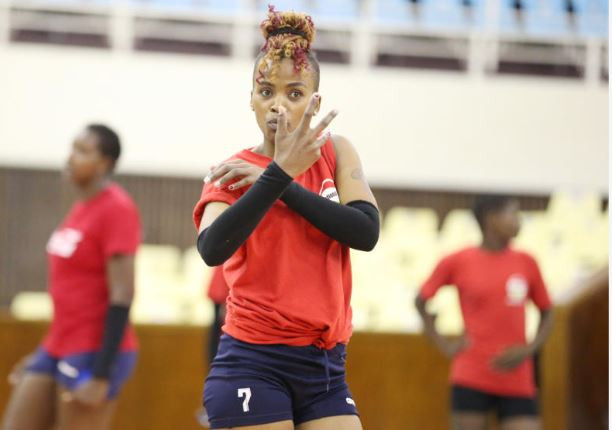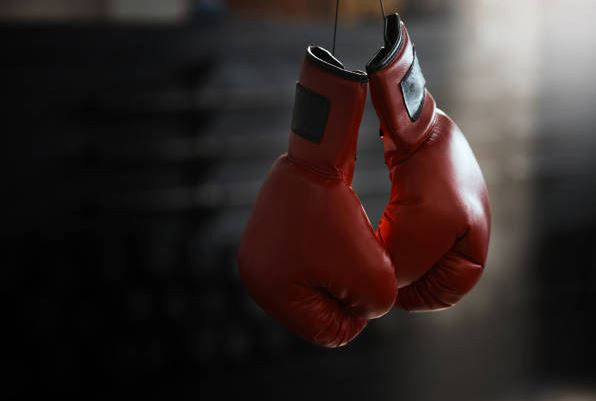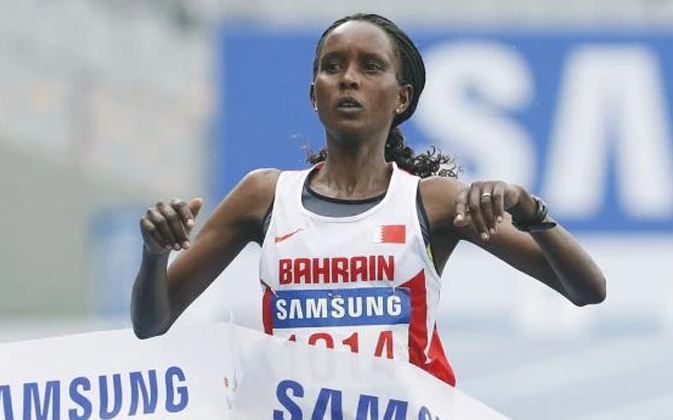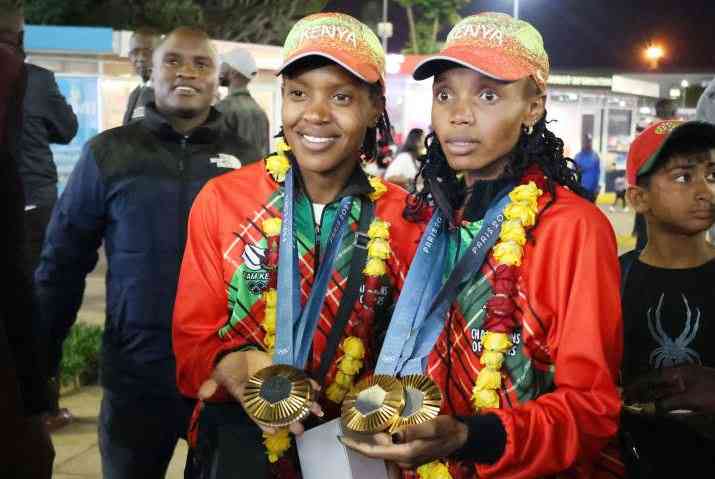Ordinarily, many Kenyans would prefer chai fupi moto (tea with a high quantity of milk) with bread, sweet potatoes and yams for breakfast, but the country's world beaters in athletics are selective in their eating habits. One would take fruit juice.
Their training sessions are gruelingly tough, with long distance athletes running 30km on the roads and thousands of metres during speed works.
But their kitchen cabinets tell a story about their eating regimes and food is key during training and competition.
From black tea and bread, fresh managu (black nightshade - a dark leafy green vegetable) cooked with milk, to ugali and rice, meal tables in most high altitude training bases across Rift Valley are dominated by local food menus.
In Kaptagat, where marathon world record holder Eliud Kipchoge and 1,500m star Faith Kipyegon train, for example, meals are modest - often sourced from local farms, where production is done organically.
Strong tea and bread for speed work
Before Mercy Kipchumba, the surprise winner of the 2021 edition of Eldoret City Marathon, leaves her house at 5.30am to train in Kapsait, a high altitude training camp at the border of Elgeyo Marakwet and West Pokot counties, she simply takes a hot cup of black tea (without milk) and bread.
"I take black tea and bread in the morning before leaving the house for the race. Taking strong tea and bread has been the norm when I go for speed work," Kipchumba says.
On why she prefers tea without milk, she says, "I want to take food that doesn't trouble my stomach during training and during competition."
Valary Jemeli Aiyabei, the 2019 winner of Frankfurt Marathon, says what an athlete eats can affect their performance.
For Jemeli, who is also a former winner of the Beijing Marathon, bananas must not miss in her kitchen cabinet.
"I train with a big number of athletes and I can say that eating is different from one athlete to the other. The coaches often remind us not to run on an empty stomach - and that is the basic principle," the Iten-based athlete explains.
She adds, "For me, I take a banana before going out for long runs and speed works, and as soon as I get back to the house, after about two hours, I sit down to enjoy a cup of tea with either sweet potatoes or yams."
Jemeli's lunch and dinner comprise what she describes as a balanced meal that fluctuates from rice and beans plus vegetables to meat eaten with rice and accompanied with fresh fruits.
What about junk food?
She says she doesn't mind junk food such as chips and chicken occasionally.
"My meals are just like those of a normal human being. The only difference is on the quantities and balancing. An unbalanced meal is a big no for me. I can't, for example, deny myself a plate of chips and chicken once in a while. It is all about what the body likes, but everything has to be measured," says Jemeli.
She adds that female athletes eat like non-athletes when they are on their maternity breaks.
Tait Hearps' book, Eliud Kipchoge. History's fastest marathoner. An insight into the Kenyan life that shapes legends, has a riveting chapter on what the world beaters training in Kaptagat eat.
Like many aspects characterising the life of a Kenyan top athlete, feeding a running star, the book says, is simple, frugal and repetitive.
The book says, unlike suggestions that many athletes are encouraged to take lots of protein to build muscle, the case is different among distance athletes.
"It seems as though so many Western athletes obssess over macros, supplements and exorbitant protein consumption, tailoring their diets to facilitate peak performance in training and rapid recovery.
"Their diet is predominantly a whole food plant-based diet. Most of the food is locally grown, organic, direct from the surrounding farms. The protein consumption of the athletes is also quite low. Most athletes rarely eat meat more than once a fortnight; it is considered an expensive luxury, especially by the athletes who aren't under management," Hearps writes.
High altitude training bases
According to Hearps, athletes in high altitude training bases such as Kaptagat mainly take piles of ugali, the country's staple, with managu and at times cabbage for dinner. Meat is occasional, but beans, milk and eggs is predominant, he observes, adding fruits such as bananas and oranges formed frequent snacks.
"Many athletes also had a daily rendezvous at 5pm to drink a cup of porridge (millet, water and sugar) and hang out as the day concludes," he says, adding that the simplicity of the dietary regime followed by Kenyan athletes is surprising, and that the meals they take forms the main menus in homes and local restaurants across the country.
He continues: "A couple of the athletes in Eliud's group would consume electrolyte powders following long runs, however, other than this we did not see anyone consuming supplements, protein powders or recovery products."
The diet, he says, was almost purely unprocessed fruits, vegetables, legumes and cereals.
Multiple world cross country and half marathon champion and two-time New York City Marathon winner, Geoffrey Kamworor, who trains with Kipchoge in Kaptagat and says he strictly follows the camp's dietary regime.
The Home Athlete Nutrition Plan
"I have maintained the same diet I follow when preparing for competition. I ensure that my diet is balanced before and after any competition I take part in," Kamworor told a webinar themed, 'The Home Athlete Nutrition Plan', which was organised by the Olympic Committee of Kenya (NOC-K) just before sports activities resumed following the Covid-19 disruptions.
Eldoret-based sports nutritionist Angela Cheruiyot says getting it wrong in a diet can upset an athlete's performance during a race. Cheruiyot says there is no specific dietary regime for athletes, but notes that an individual sportsperson has specific dietary requirements. She says nutrition is personalised after assessment of each athlete.
"There is no specific formula, but dietary regimes for long distance athletes can differ from those of track and field athletes. It also varies from one sport to the other. The key thing is a balanced diet," she says.
"It is also good for them to enjoy their favourite meals, so long it is balanced and good for their health."
 The Standard Group Plc is a multi-media organization with investments in media platforms spanning newspaper print
operations, television, radio broadcasting, digital and online services. The Standard Group is recognized as a
leading multi-media house in Kenya with a key influence in matters of national and international interest.
The Standard Group Plc is a multi-media organization with investments in media platforms spanning newspaper print
operations, television, radio broadcasting, digital and online services. The Standard Group is recognized as a
leading multi-media house in Kenya with a key influence in matters of national and international interest.











